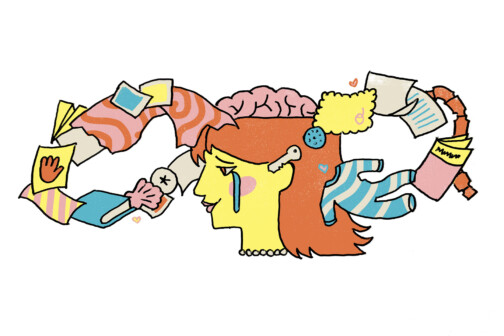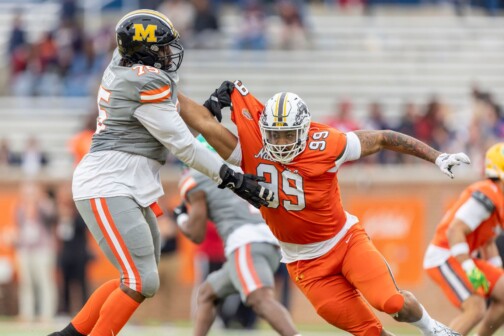When Mark Zuckerberg, Eduardo Saverin, Dustin Moskovitz, and Chris Hughes invented Facebook in their Harvard dorm room in early 2004, what exactly had they created, and why, only six years later, is that invention at the heart of a massively hyped new feature film, The Social Network? That is not a question the new film tries to answer. It assumes we understand that the social networking site reinvented (to an extent) how the internet works and how certain groups and generations interact. It doesn’t address how that invention may have fundamentally changed the college life, or socialization, or the way relationships form, or how bullying manifests, or how business networks expand, or any of the myriad ways that Facebook has altered the characteristics of our social bonds. This is because by definition, the movie about the founding of Facebook takes place in a pre-Facebook world, which is to say that only in the film’s final moments do we get a hint at what is truly epic about this story — that Facebook has changed the way some of us live.
By telling the story of the creation of this web invention, The Social Network confines itself to a less socially pressing question and a less probing genre: the business success story. The film is essentially an engaging drama about the rise of the world’s youngest billionaire. Don’t believe the hype: this is the story of Mark Zuckerberg, not Facebook, and it follows Mark Zuckerberg from his dorm room to the corner office of a multi-billion dollar company. It is a bit of capitalist triumphalism mixed with a felt story about Zuckerberg and his friends (the real kind, not the Facebook kind), and the result is a movie at war with itself. Its story drifts towards the bio-pic genre’s usual character reductions, half-baked iconization, and bite-sized morals, while continually trying to find some emotional connection with its real life material that has the substance of an ensemble fiction.
To its credit, The Social Network finds its successes. The first scene, perhaps the movie’s best, shows pre-Facebook Zuckerberg (Jesse Eisenberg) in a bar with girlfriend Erica (Rooney Mara). Zuckerberg blabbers on in a stream-of-consciousness barrage of confusing data and associations that paint him as a Woody Allen meets Bill Gates. Erica tries to keep up, but as Zuckerberg rambles, he lets his guard down, revealing himself as a paranoid, obsessive, and solipsistic jerk. It sets the stage for what is essentially at stake in the movie: the character of Zuckerberg. Is this young man a genius, an opportunist, an idea thief, a good friend, or, as Erica bluntly labels him, just an a**hole?
When The Social Network sticks to its strength – these charged scenes that feature smart dialogue and subtle, sparing personalities – it is an engrossing piece of drama. But again, it is tugged along by its historicism – the necessity of telling the factual story. From that first scene the movie retells the origin of Facebook more or less chronologically, only jumping from the timeline to frame the film with the dual lawsuits levied at Zuckerberg after the social networking site’s massive success by co-founder Eduardo Saverin and the Winklevoss twins, two Harvard seniors who claim Zuckerberg stole their idea for creating a online Harvard social network.
Facebook evolves out of a prank an irate and cynical Zuckerberg plays after Erica breaks up with him. He creates Facemash, a website that steals the headshots of girls from Harvard’s many sorority “Face Books” and allows students to vote on who is better looking. The site is so popular, it crashes Harvard’s network, resulting in disciplinary action for Zuckerberg, but inspiring the idea for a Harvard-centric social networking site.
After a couple of weeks of furious coding, Zuckerberg launches “The Face Book” and it takes off, infuriating the über-preppy Winklevosses, who had been speaking with Zuckerberg about launching a similar site. The Face Book spreads from college to college, and with its success, Zuckerberg butts heads with Eduardo (Andrew Garfield) who wants to sell advertising on the site, but the zealous hacker/pirate Zuckerberg wants to keep the site “cool” and un-commercial. He is backed-up by Napster creator Sean Parker (Justin Timberlake, perfectly capturing Parker’s smarmy attractiveness), who seeks out the Facebook creators as the site spreads across the country. Parker becomes instrumental in taking Facebook to the next level, pushing Eduardo out the picture in the process. Parker’s influence leaves Zuckerberg in a conundrum: chase success, riches, and a high-flying lifestyle, or stay loyal to his friend. We all know which way the story goes, and Zuckerberg is ultimately left picking up the pieces of his defamed character in the law suit proceedings.
Director David Fincher (Zodiac, The Curious Case of Benjamin Button) uses the deposition scenes to flesh out Zuckerberg and his motivations, and they add a dimension to the film that the rest of the story doesn’t quite possess. In another nice touch, Fincher has Zuckerberg sitting in an empty conference room on his laptop after a long deposition hearing, refreshing his Facebook page over and over to see whether Erica, years after their breakup and Zuckerberg’s success, has accepted his friend request. The skinny, nerdy Zuckerberg is a picture of a lonely titan, who has climbed a mountain only to find himself alone.
It is almost surprising that this scene shares screen time with the movie’s other glamorized reenactments – from a Harvard frat party populated with supermodels (who make out with each other) to computer nerds zip-lining into a backyard pool in Silicon Valley – which almost seem like advertisements for Harvard’s computer science department (who can surely expect massive increases in applications thanks to this movie). What is unfortunate is that the exaggerations of this polo shirts-to-riches story drown out its central focus, Zuckerberg. The personality that is so effectively established in the film’s brilliant opening scene erodes as the film progresses into a shallower picture of glib prick with a heart of gold. He softens, not because of character development, but rather the character’s inconsistent realization. Fincher allows his protagonist’s motives to become too easily reducible: Zuckerberg is at war with his own eccentricities, frustrated that his genius and drive obscure his good nature, always yearning to be liked for who he is.
And while Fincher’s final metaphor – Zuckerberg still trying to prove to Erica that he is not an a**hole by becoming her Facebook friend – resonates, it is also comes off as a little trite. From the shot’s mood and tone, we are supposed to see this as a “Rosebud” moment. The fact that the scene doesn’t pack this emotional punch draws attention to the real reason why The Social Network doesn’t achieve these lofty cinematic heights: with its search for an epic story behind the monumental impact of Facebook on the world, it is focused on the wrong character. In the curious case of Facebook, the real hero is the invention, not the inventor.






